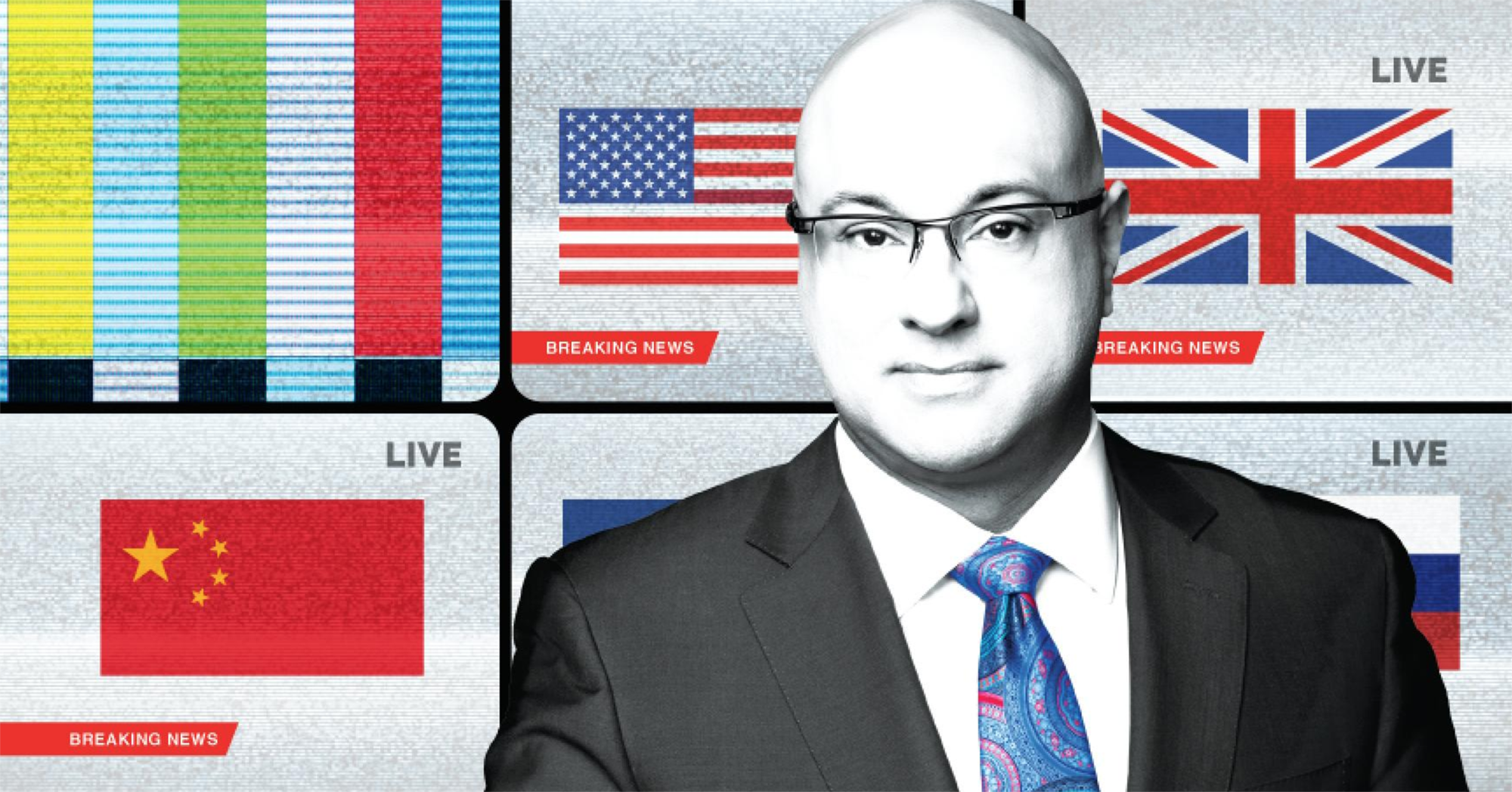“If you’re looking to hear from an expert on the weaponization of culture, you’ve come to the wrong place.”
MSNBC correspondent and Trump administration critic Ali Velshi opened his speech at the Spring Wall Exchange with a surprise. The theme of his talk, after all, was “The Weaponization of Culture” — an exploration of how culture wars, identity politics, and populism have risen to the forefront of global politics. No one seemed more prepared to address that than Velshi, who has established a name for himself as a fierce defender of fact in an era of fake news.
“What you have in me instead,” he continued, “Is a student of the topic.”
Velshi has had a lot of time to think about identity. Unlike Barack Obama, Velshi actually is a Kenyan-born Muslim. He grew up in Toronto and then relocated to America — “a double immigrant,” as he called it.
“As a kid, I was aware I was brown,” said Velshi. “And I vaguely knew or hoped that I was Canadian.”
Over the course of his two decades in broadcast journalism in the US, he noted how “immigrant” has become a dirty word in a country founded by them. The return of nativism and populism, Velshi says, is rooted in culture.
He explained that when culture is weaponized, it prevents discourse instead of promoting it.
Weaponized culture upends “the norm of narrative and debate,” becoming a tool of silencing discourse instead of promoting it. Identity becomes a zero-sum game where, as Velshi puts it, “If they win, we lose.” The result is violence, a sharp turn to traditionalism, and rhetoric that forces people to take sides between “us or them.”
Velshi concluded his talk with a call to return to discourse — not war — as a way of sharing ideas. He reminded us, in cellist Yo-Yo Ma’s words, that “unless you listen, you can’t hear.”
After his talk, Velshi made good on his words. Audience members challenged his stance on Trump and his perceived preference for Democrats. One asked a question that Velshi had heard many times before: “What do you think about Islam?”
He responded to each of them with measured, thoughtful comments, equal parts challenging and inviting. “If you’re so confident in your ideas, you should be able to debate them,” he later remarked. If Velshi’s talk had a lesson, this was it — the value and scarcity of frank, but respectful, debate. When people rose to boo an audience member who identified himself as a Trump supporter, Velshi cut them off. “We came here to have this conversation,” he said. “So let’s please give this man a round of applause.”
A full stream of Velshi’s lecture is available here, courtesy of the Peter Wall Institute for Advanced Studies.

